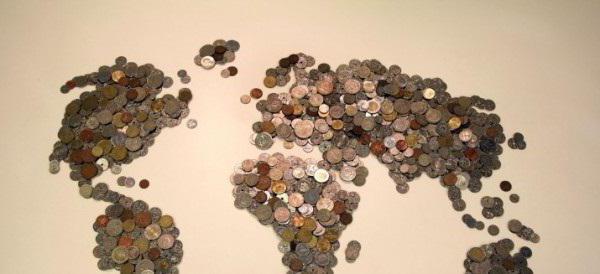Already from school, we begin to study various theories that have allowed modern science to step forward. But what a theory is, how it is formed - this is not taught at school. And in the system of modern higher education the construction of theories of time is almost not given. But this is strange, because the theory is a kind of prerequisite, an inference that should be confirmed or refuted by real observations. Theories move science forward, are responsible for progress and civilization, have made a skilled person intelligent, finally.
Forecasts and Theories
The emergence of theories can be explained by two reasons. Firstly, one can understand the logic of the observed events in order to evaluate the existing reality and adapt to it. Secondly, after evaluating and analyzing the facts, you can make any predictions about the future of certain observed phenomena. The confirmed forecasts prove the correctness of the advanced theory. If the forecasts do not find their confirmation in future events, then the theory is not good, it needs to be changed.
Definition of theory
What does theory mean in science? According to many definitions, theories are a logical chain of many unrelated symbols that form an understandable picture of the world. Any theory is just an intellectual tool. It cannot be true or false, but only more or less useful for thought. A theory cannot be “discovered”; it can only be reached by a painstaking analysis of the facts and an attempt to logically connect them into a single whole.
Thus, the answer to the question of what theory is lies in the field of human imagination, intellectual labor, and sometimes a happy event that helps to isolate the most essential from a pile of facts. So, on the basis of logic and analysis in science, many theories have emerged - the theory of the state, for example. Many of these logical constructs have been defeated, and some have survived centuries and are now useful for science.
The logic of creating theories
The meaning of the word “theory” suggested to us that any conclusion must be based on facts. The story tells of many cases when a fruitful theory was built on the basis of an analysis of other people's achievements and observations. Understanding what a theory is is also based on one’s own experience, observation, or reflection. An excellent example of building a good theory would be an analysis of the causes of the unrest in the 60s that swept the entire United States. When the wave of protests was just beginning, many associated its occurrence with the performances of groups of the poor. But the construction of the theory on such an assumption turned out to be erroneous - as polls showed, all segments of the population took part in the unrest. And only a further analysis of the facts made it possible to establish the reasons for the protests and take control of the situation.
In a similar example, distorted facts could send the conclusions of analysts in a false direction. That is why a search study is necessary, the purpose of which is to identify reliable facts. If we want to comprehend what theory means and build a reliable logical construction, we should not limit ourselves to our own experience - it may turn out to be limited and subjective. A good theory starts with finding available facts for a speculative model, with which we try to explain the existing phenomena. And in this she is helped by well-known logical tools - induction and deduction. The theory of law makes extensive use of these tools, creating or analyzing laws.
Induction
Induction - the transition from private to general. This fairly common logic is constantly used in everyday life. Based on our own experience, we make a logical conclusion - from what we saw and observed, to the forecast of what we expect to see in the future. If we pressed the elevator button five times, and all five times the elevator doors opened before us, it is logical to think that the same thing will happen for the sixth time.  This is how an inductive generalization is built - from events that have already occurred, to predictable events that should occur.
This is how an inductive generalization is built - from events that have already occurred, to predictable events that should occur.
Deduction
However, to understand what a theory is, induction alone is not enough. Redirecting to the facts does not yet explain the relationship between the observed phenomena. Let's go back to the elevator example. Suppose we took into consideration the observation according to which a subject does not reach his apartment in a staircase. Since people do not know how to fly, we can guess that in this house there is an elevator, which takes the person to the desired floor. Under this assumption, we moved from observation to the alleged event, that is, we reversed the reasoning described in the previous chapter. Such "inferences the other way around" are called deduction. Assumptions inviting deduction-based conclusions are called axioms or postulates.
Requirements for a Good Theory
Any theory put forward by itself will not be effective. To find out what the theory means, whether any logical construction should be put forward in this case and whether it will be useful, three questions need to be answered:
- Is a theory needed at all? Will it be useful for understanding surrounding events?
- Do the components of the advanced theory agree with the observed facts?
- Is it possible with the help of this theory to advance in the knowledge of the laws of nature, society, the universe?
It is on these principles that all known modern theories are built.
Theory of Statehood
The theory of the state as an independent science was formed under the influence of thousands of years of previous observations. It is a good example of how, under the influence of many subjective assessments, the general principle of building statehood was formed. In all cases, the theory of the state was based on the realities of social life in various historical eras. For some researchers, the theory of the state was based on religion, for others - on the principles of conducting economic activity, for others - on social contradictions that took place at all stages of building civilization. Therefore, the forecasts and further conclusions about the future of man and the state are far ambiguous, and only our descendants can judge the effectiveness of a particular theory.
Therefore, the forecasts and further conclusions about the future of man and the state are far ambiguous, and only our descendants can judge the effectiveness of a particular theory.
Economic theory
State theory would be incomplete without considering the interaction of man and society in the light of various economic processes. The roots of such processes lie in the initial contradiction between unlimited human needs and limited resources to satisfy them, and economic theory gives its explanation of such a contradiction.
Summary
The process of building theories is endless. Each of them has the right to exist, if it is consistent, based on an analysis of facts and can be confirmed by future observations. A scientific theory without confirmed facts and without a future turns into a religion - after all, genuine science not only explains the phenomena, but also allows the mind to go further and see the future. Therefore, it is so important not to cling to theories of the past - only a fresh look at trivial events can push the mind to a new understanding of reality.